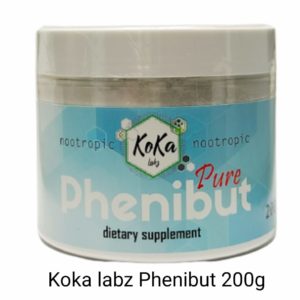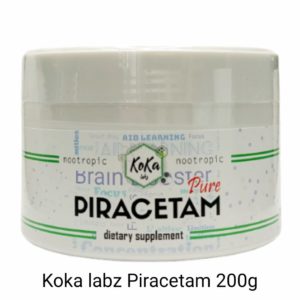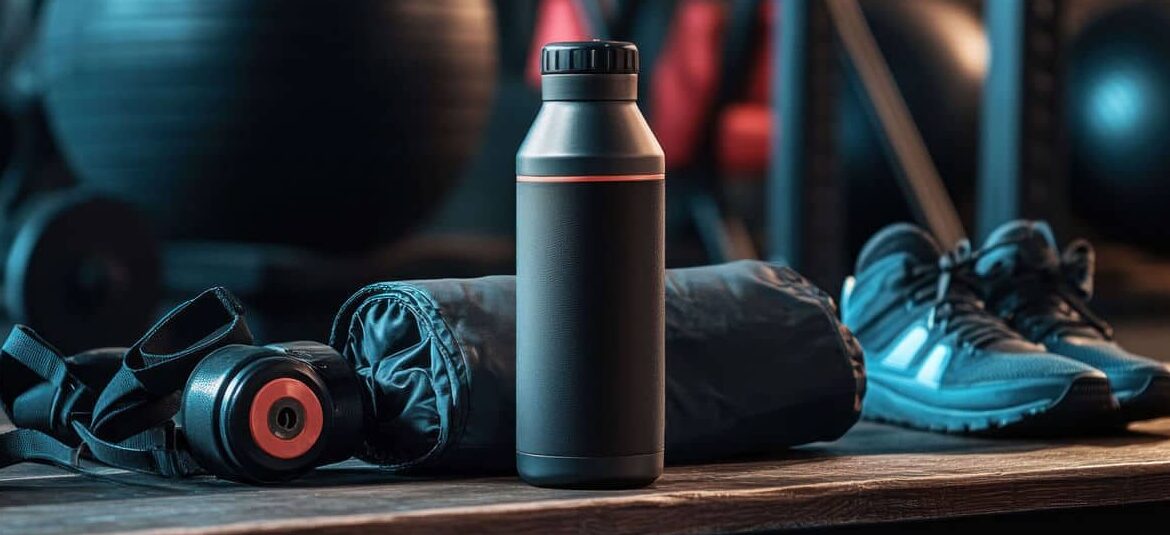
Phenibut or Piracetam
If you cannot concentrate or have trouble focusing, you probably wonder how to help yourself. You may encounter such problems when you feel sick and dull. There are many different tips on various websites to help you stay focused. Unfortunately, such home remedies do not work for everyone. Therefore, many people need to support themselves with dietary supplements to be able to keep their attention for longer. Thanks to this, they will finally be able to learn or perform other duties that require concentration and attention. There are two very similar products on the market – Phenibut and Piracetam. Both Phenibut and Piracetam affect your brain and nervous system. However, these two products are slightly different. How? And which of these specifics is more suitable for you?
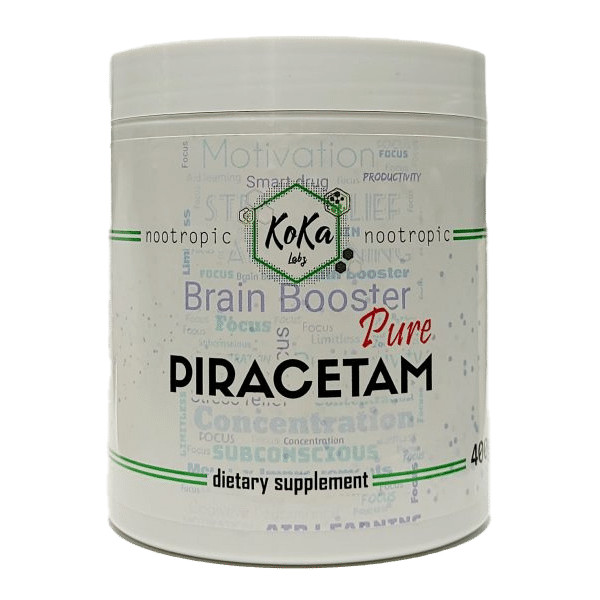 Piracetam – what it is, how it works
Piracetam – what it is, how it works
Piracetam is a nootropic agent with cognitive enhancement properties. Thanks to it, the cerebral cortex is protected against the lack of oxygen to ensure proper functioning. Piracetam is a derivative of gamma-aminobutyric acid (GABA). In medicine, it is administered to people with cognitive disorders with dementia syndrome (except for Alzheimer’s disease), to those with myoclonus of cortical origin, children with speech therapy defects and dyslexic disorders, as well as people with vertigo and peripheral origin. It is worth knowing that it is a product considered the “father” of all racetams.
And how exactly does piracetam work? First, after taking it, the use of oxygen and glucose in the brain increases. Compared to Phenibut, the daily doses needed are higher – nevertheless, be aware that Piracetam is not addictive.
Piracetam, recognized as the “father” of racetams, is a pioneering nootropic widely studied for its cognitive enhancement properties. Its mode of action, while not completely understood, involves several fundamental mechanisms:
- Increased Oxygen and Glucose Utilization: Piracetam enhances the brain’s use of oxygen and glucose, the primary energy sources for brain cells. This improved energy metabolism can lead to enhanced mental performance, especially under conditions of stress or reduced oxygen levels (like hypoxia).
- Neuroprotective Properties: It has neuroprotective effects, which can help protect the brain’s cerebral cortex against damage due to a lack of oxygen. This makes it potentially beneficial in conditions involving cognitive impairment.
- Modulation of Neurotransmitter Systems: Despite being a derivative of GABA, Piracetam doesn’t directly modulate GABAergic systems. Instead, it is thought to influence the activity of acetylcholine, a neurotransmitter associated with memory and learning, and possibly other neurotransmitter systems.
- Enhancement of Brain Plasticity: Piracetam may improve the brain’s plasticity, which is its ability to change and adapt, which is particularly important for learning and memory processes.
- Medical Uses: As you mentioned, Piracetam is used in various medical contexts. It’s prescribed for cognitive disorders in dementia (excluding Alzheimer’s disease), myoclonus of cortical origin, language and learning disorders in children, and conditions like vertigo of a peripheral origin.
- Dosage and Non-Addictive Nature: Higher daily doses of Piracetam are generally required compared to Phenibut. Importantly, Piracetam is not considered addictive, which makes it a safer option for long-term use in comparison to substances with the potential for dependence.
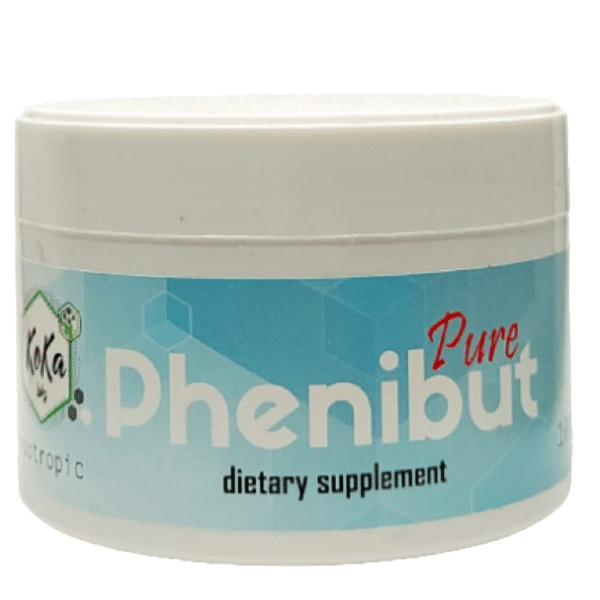 Phenibut – what it is, how it works
Phenibut – what it is, how it works
Phenibut, just like Piracetam, is a derivative of gamma-aminobutyric acid (GABA), primarily responsible for inhibitory or calming actions. Phenibut also has a phenyl ring, so – compared to GABA alone – it can give better results with lower doses. This is possible because it better penetrates the blood-brain barrier, delivering the signal faster to the nervous system. It is worth knowing that such signals control every process in the human body. It should also be emphasized that Phenibut makes it easier to fall asleep and gives a lot of support to people suffering from addictions. However, it would be best to remember not to exceed the doses recommended by the manufacturer.
Phenibut, indeed a derivative of GABA with the addition of a phenyl ring, exhibits unique properties due to its structure, which differentiates it from GABA and other similar compounds:
- Enhanced Blood-Brain Barrier Penetration: The presence of the phenyl ring in Phenibut allows it to cross the blood-brain barrier more effectively than GABA. This enhanced penetration means it can exert its effects on the brain with lower doses than GABA alone.
- Effects on the Nervous System: Phenibut acts as a GABA agonist once it crosses into the brain. It mimics GABA’s inhibitory or calming actions, which is the primary inhibitory neurotransmitter in the brain. This action reduces anxiety, a calming effect, and potential sedation.
- Sleep and Addiction Support: Phenibut is known for making it easier to fall asleep, which can be beneficial for those struggling with sleep disorders. Additionally, its calming effects can be supportive for individuals dealing with certain types of addictions, though this should be approached with caution and under medical supervision.
- Caution with Dosage: It is crucial to adhere to recommended dosages when using Phenibut. Overuse or misuse can lead to dependence, tolerance, and withdrawal symptoms. The risk of adverse effects increases significantly with higher doses or prolonged use.
- Control of Bodily Processes: The calming effect of Phenibut on the nervous system can indirectly influence various processes in the body, as the nervous system plays a central role in regulating bodily functions.
Differences between Piracetam and Phenibut
The first and most striking difference between Piracetam and Phenibut is the dosage. Piracetam is a product whose daily dosage is slightly higher than Phenibut’s. However, this does not mean that Piracetam is dangerous to your health or addictive. It’s just the opposite – Piracetam helps in fighting addictions.
The second difference between Piracetam and Phenibut is testing these two substances. Piracetam is a thoroughly tested, medically approved agent for treating certain diseases. In turn, Phenibut has not been thoroughly tested yet – yes, there were tests on animals and volunteers, but you should be aware that this product is still in the testing phase.
It is also worth knowing that although these two products are so similar in terms of their structure and ingredients, Phenibut can help people with insomnia fall asleep, and Piracetam (if taken too late in the evening) can cause problems falling asleep, which you have to keep that in mind.
Piracetam and Phenibut, while both derivatives of gamma-aminobutyric acid (GABA), have distinct differences in their mechanisms of action, effects, and uses:
- Chemical Structure and Function:
- Piracetam does not directly act on GABA receptors despite being a GABA derivative. Instead, Piracetam is believed to modulate acetylcholine and glutamate receptors, which are crucial for cognitive processes.
- Phenibut acts as a GABA receptor agonist, particularly at GABA-B receptors. Its structure allows it to cross the blood-brain barrier more effectively than GABA itself, calming the brain.
- Primary Effects:
- Usage in Medical Settings:
- Piracetam: Often prescribed for cognitive impairments, dementia (excluding Alzheimer’s disease), dyslexia, and cortical myoclonus. It’s also used off-label for a range of cognitive issues.
- Phenibut: Primarily used to treat anxiety, insomnia, and other stress-related conditions. It’s also noted for its off-label use in treating withdrawal symptoms from certain addictions.
- Side Effects and Safety Profile:
- Piracetam: Generally well-tolerated with a low side-effect profile. Common side effects include headache, insomnia, and gastrointestinal issues.
- Phenibut: Has a higher risk of dependence and withdrawal symptoms, especially with prolonged or high-dose use. Side effects can include dizziness, fatigue, and nausea.
- Dosage and Dependence:
- Piracetam: Requires higher doses compared to Phenibut and is not considered addictive.
- Phenibut: Effective at lower doses due to its ability to cross the blood-brain barrier but has a higher risk of dependence and should be used cautiously.
 Which products suit you best?
Which products suit you best?
If you are wondering which of these specifics would be a better choice, we want to emphasize that the first principle – no matter what you choose – is always to choose products of good, top brands. Then, you can be sure that the quality of the product you take is very high and has a genuinely reliable composition.
Therefore, we recommend the products from the Koka labz brand, which has been producing various products for many years, including Phenibut and Piracetam. You can purchase them here, for example:
Piracetam – https://www.crossthelimits.co.uk/product/5719/,
Phenibut – https://www.crossthelimits.co.uk/product/phenibut-200mg/.
